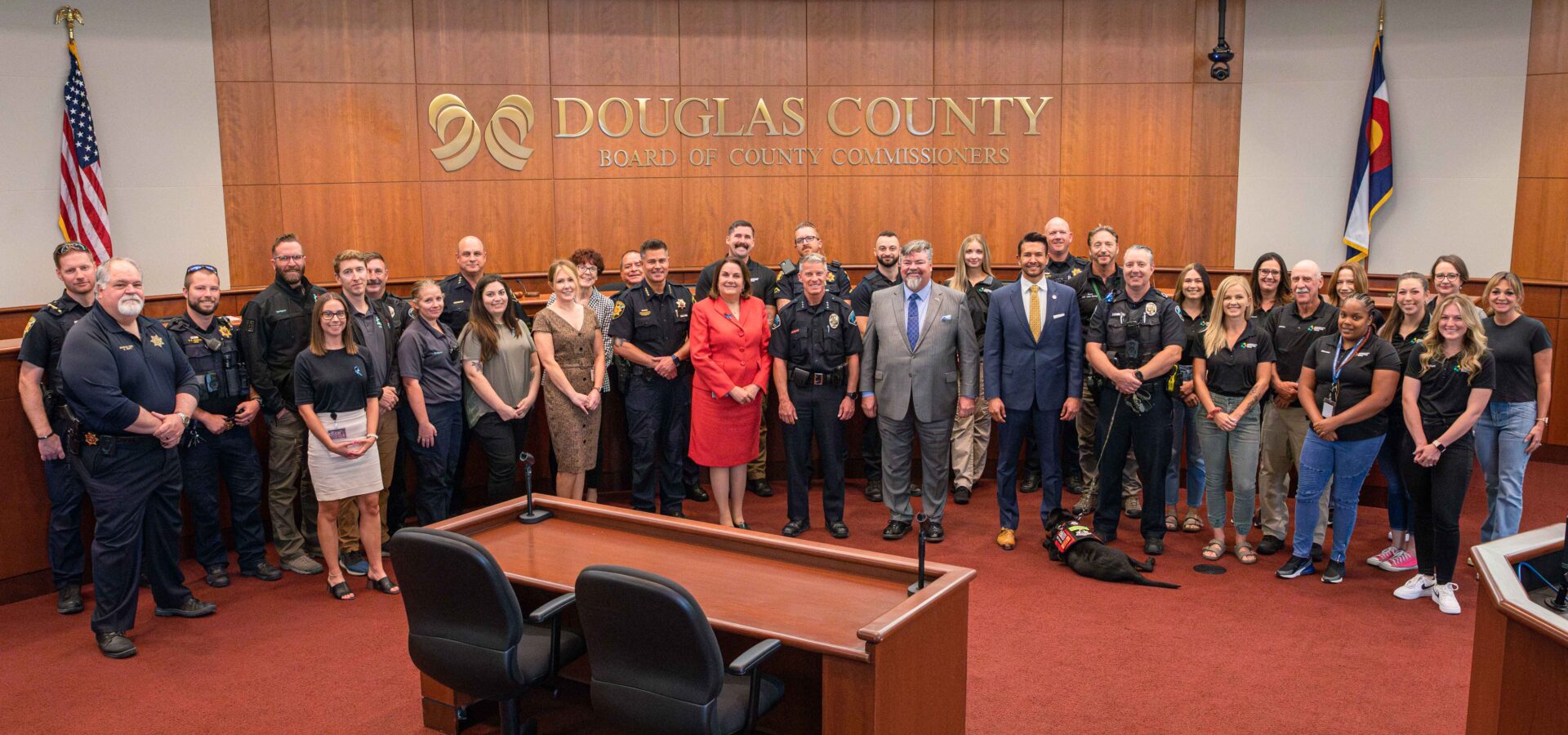Pictured: Board of Douglas County Commissioners alongside co-response team members
You’ve read the research that unaddressed mental health issues can lead to much larger issues – no matter where you live. But did you know that there are dedicated teams in Douglas County prepared to respond to those in need of support right where they are?
Seven days a week, across the entire county, crisis-trained, master’s level mental health clinicians are responding to the scene alongside law enforcement, ensuring those in crisis get the mental health resources and services they need.
The Board of Douglas County Commissioners is honoring the extraordinary contributions of these unique partnerships by declaring Sept. 18-24, 2023, as Douglas County Co-Responders and Crisis Clinicians Week. Douglas County currently has 12 teams using the co-response model.
In 2017, Douglas County launched Community Response Teams, which pair a law enforcement officer with a mental health professional to help adults and youth experiencing a mental health crisis avoid the emergency room or jail and, instead, find the support they need to heal.
Now, there are nine teams – including officers and deputies from Castle Rock Police, the Douglas County Sheriff’s Office, Lone Tree Police and Parker Police – with response capability seven days a week. Two of those teams focus solely on youth response, covering every school – public, private and charter – in Douglas County.
“I am so proud of the collaboration between our deputies and mental health professionals, who are the compassionate bridge that connects those in crisis with the help they need,” said Douglas County Sheriff Darren Weekly. “This week is a reminder that empathy and teamwork can truly make a difference in people’s lives.”
To date, these nine Community Response Teams have served more than 7,500 individuals – including 1,000 youth. The teams have responded to more than 3,900 active 911 calls and received more than 6,400 referrals. About 1,400 people have avoided an unnecessary visit to the emergency room, and 589 have avoided jail.
“The co-response model has saved and enhanced thousands of lives in Douglas County,” said Douglas County Commissioner Abe Laydon, Board Chair. “We’ve become a national model for co-response, and now, we’re using this successful model in other areas of need.”
In 2022, Douglas County launched another co-response team, called HEART, focused on helping people experiencing homelessness. There are three teams in Douglas County.
HEART Navigators are subject matter experts, also with experience in behavioral and mental health or case management, who proactively and directly interact with those experiencing homelessness in a compassionate way. They gather information on needs, assess vulnerability, provide complete case management, and make referrals to appropriate community services.
Partnered with law enforcement, this community approach helps ensure people experiencing homelessness do not end up in emergency rooms or jail, but rather are directed to community services.
To contact a member of the HEART team please call 303-660-7301 or complete the online referral form.
Community Response Teams are dispatched in response to specific 911 calls, as determined by the dispatcher. In addition to calling 911 for help, there are two specific resources if you or a loved one is experiencing a mental health crisis or thoughts of suicide:
988: Dial 988 for 24/7, free and confidential support for mental health, substance use or an emotional crisis.
Colorado Crisis Services: Call 1.844.493.TALK(8255) or text TALK to 38255. This agency has trained counselors who are available 24/7/365 to work with persons in crisis and the people supporting them.

